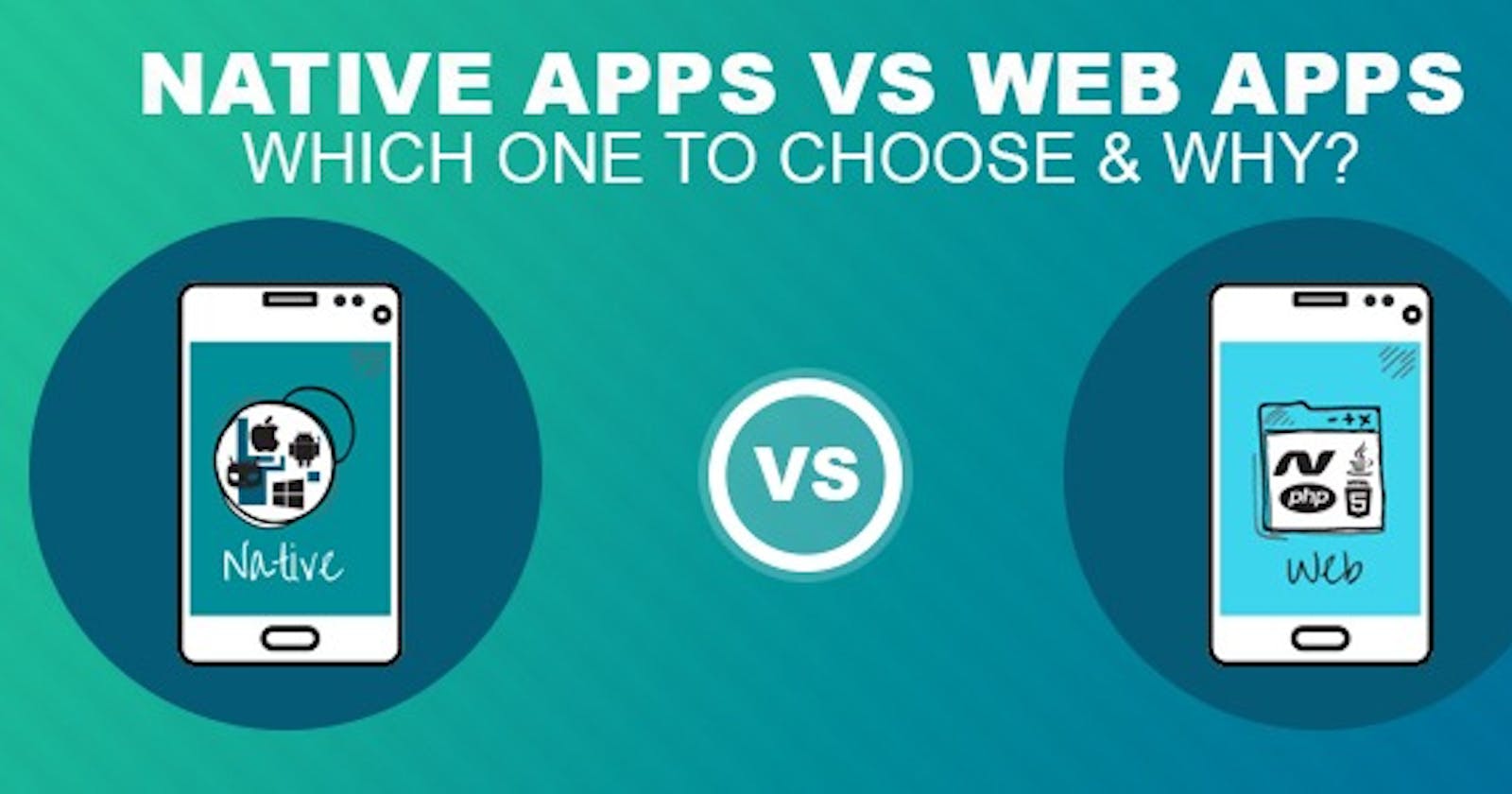This is always an unclear developer's decision. The answer to that question is depending on your business and the nature of your app. As result, the topic will walk you through the advantages and disadvantages of both.
Native application:
Native mobile apps are the most common type of app. They are built for specific platforms and are written in languages that the platform accepts such as Swift for ios and Kotlin for Android.
1. Advantages:
- Deliver the best performance of all development approaches.
- Ability to send push notifications.
- Offline Access.
- Improve user experience because of using its own OS.
2. Disadvantages:
- Cost development: the developers need to build separate apps if they want to serve both platforms.
- Required download.
- App store approval can take time.
- Required experienced developers because of using specific programming languages.
Web application:
A web app is a responsive website that users can launch in the mobile device browser or on their desktop computer. For example Progressive web apps
Progressive web apps (PWAs) are hybrids of regular web pages and native apps. Overall, web apps lack the functionality of native apps.
1. Advantages:
- Accessibility — Web apps allow access to users on a wide range of devices through the browser.
- It's easy to maintain because of building cross-platform.
- Save time development.
- Faster go-to-market because the apps don't need to be approved by app stores/ google play.
2. Disadvantages:
- Have limited feature accessibilities such as a camera or local features.
- Required browser and take many steps to use.
- Web apps are slower and much less responsive than native apps.
- Users is hard to find the apps in Appstore or GooglePlay.
- No Offline Availability.
